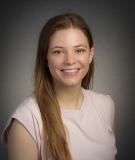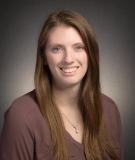Lourdes Exercise Science majors gain the skills and knowledge needed to apply to graduate training or certifications or for entry-level work in personal training, strength and conditioning, corporate fitness, wellness, and health maintenance.

Exercise Science
Bachelor of Science
Exercise Science is the interdisciplinary study of human movement. This scientific approach to fitness explores the powerful connection that exercise, diet, and fitness have on a person’s health and well-being. Students benefit from extensive education and hands-on practical experience in fitness and healthcare settings.
Students seeking to further their education can apply to graduate school. With a graduate-level degree, individuals can pursue careers as a physical therapist, sports medicine physician, fitness and wellness department chief administrator, recreational therapist, cardiac rehab specialist, or researcher at colleges and universities.
Plan of Study
BACHELOR OF SCIENCE IN EXERCISE SCIENCE
Total Credit Hours: 120
To complete your Bachelor of Science in Exercise Science degree program, you are required to:
- Complete a minimum of 46 semester hours in core courses and 32 semester hours of 300/400 level courses
- Maintain a minimum of 2.0 grade point average for all college level courses
- Fulfill the degree requirements in your chosen concentration including the General Education Requirements.
Core Requirements (24 credit hours)
LUC 101
ENG 101 Composition I: Essay Writing
ENG 355 Writing for the Science and Health Professional
MTH 122 College Algebra
Ethics course
Enduring Question Course (such as)
- BIO 399 What Makes Us Sick?
- ENG 399 Disability and Humanity
- NUR 399 What is a Culture of Health?
- THS 399 What is Leisure?
PHL 202 Ethics for Health Care Professionals
Two Theology courses
Fine Art or Music Course
BIO/BIL 201 Principles of Biology I
PSY 110 General Psychology
Literature course, such as ENG 215 Sports and Literature
History course, such as HST Sports in American History
Service Learning (must complete 20 hours)
Exercise Science Major Requirements (60 credit hours)
LUC 101
BIO 330/BIL 330 Anatomy & Physiology I
BIO 331/BIL 331 Anatomy & Physiology II
CHM/CHL 181 General Chemistry I
EXS 100 Introduction to Exercise Science
EXS 108 First Aid & CPR
EXS 210/EXL 210 Exercise Physiology
EXS 320/EXL 320 Biomechanics
EXS 330/EXL 330 Principles of Strength and Conditioning
EXS 345 Introduction to Research
EXS 350/EXL 350 Fitness Assessment & Exercise Prescription
EXS 390 Internship
EXS 490 Capstone Practicum
MTH 212 Statistics
SPT 300 Legal and Ethical Issues in Sports
Directed Electives (18 credit hours)
Choose from the following:
BIO 202/BIL 202 Principles of Biology II
BIO 207 Introduction to Public Health
BIO 313 Nutrition Science
BIO 319 Consumer Health
BIO 335/BIL 335 Microbiology
CHM/CHL 182 General Chemistry II
EXS 101 Weight Lifting
EXS 105 Cardiovascular Fitness
EXS 200 Environmental Physiology
EXS 335 Sport Nutrition
EXS 390 Internship
EXS 299/499 Topics in Exercise Science
EXS 400 MWACSM Conference Course
EXS 410 Environmental Physiology
EXS 420 Functional Anatomy
PHS 201/PHL 201 College Physics with Lab (MTH 130 pre-req)
PSH 202/PHL 202 College Physics with Lab
PSY 210 Developmental Psychology
PSY 320 Adult Development & Aging
PSY 350 Abnormal Psychology
General Electives to equal 120
Graduate training programs and certifications may differ in their admission criteria. The student is strongly encouraged to identify the specific requirements of the programs to which they are interested in applying.
EXERCISE SCIENCE MINOR
Total Credit Hours: 18
Required Courses:
EXS 100 Introduction to Exercise Science
BIO 204* Basic Human Anatomy and Physiology
EXS 210/EXL 210 Exercise Physiology
EXS 320/EXL 320 Biomechanics
*Students may substitute BIO 330/BIL 330 Anatomy and Physiology I and BIO 331/BIL 331 Anatomy and Physiology II (8 hours) for BIO 204
Electives: 4 credit hours
EXS 101 Weight Lifting (1 credit hour)
EXS 105 Cardiovascular Fitness/Walking, Jogging (1 credit hour)
EXS 108 First Aid & CPR (1 credit hour)
BIO 114 Medical Terminology (1 credit hour)
BIO 313 Nutrition Science (3 credit hours)
BIO 335 Microbiology (3 credit hours)
BIL 335 Microbiology Lab (1 credit hour)
EXS/EXL 330 Principles of Strength and Conditioning (4 credit hours)
EXS/EXL 310 Fitness Assessment & Exercise Prescription (4 credit hours)
SPT 300 Legal and Ethical Issues in Sports
Learning Outcomes
Graduates of the program will:
- Understand principles of biology, chemistry, and nutrition that underlie human movement and health (ULO I.C.)
- Demonstrate effective, ethically-grounded, and culturally-competent professional skills in exercise science and human performance (ULO IV.A., IV.B., V.B.)
- Advocate for individual health and a healthy society (ULO IV.D.)
- Critically evaluate research for evidence-based information (ULO II.A., II.B.)
- Communicate effectively and work collaboratively within health and exercise settings (ULO II.E., II.F.)
MISSION
The exercise science program gives students skills and knowledge they can apply to graduate training or certifications or for entry-level work in personal training, strength and conditioning, corporate fitness, wellness, and health maintenance. Learning in the classroom and lab is supplemented with collaboration with professionals in the field through internship and practicum. Students gain an appreciation for the dynamics of the human body and the ability to motivate people to maintain a positive lifestyle.
Internships
Internships provide a great complement to the personalized liberal arts education provided by the College of Arts and Sciences. Through partnerships with local non-profit organizations, governmental agencies, and corporations, Exercise Science majors gain valuable professional experience from paid and unpaid internships. Students can choose to complete a department-accepted internship ANYWHERE, whether it’s in Toledo or in their hometown. Popular internship sites include the following locations:
- PT Link (physical therapy)
- Athletico (physical therapy)
- Athletic Republic (strength and conditioning)
- Lourdes University (athletic training, strength and conditioning)
- Promedica (physical therapy, occupational therapy, cardiac rehabilitation)
- St. Francis High School (teaching anatomy and physiology)
Talk with your advisor to pursue these opportunities.
Job Outlook
Demand for exercise physiologists is on the rise. Corporate, medical, and educational industries continue to emphasize fitness and childhood obesity programs. Today, individuals are more dedicated to achieving or maintaining their maximum health and wellness levels.
The Bureau of Labor Statistics projects a 10 percent growth in exercise science employment between 2022 and 2032. Bachelor of Science in Exercise Science program graduates have several pathways open. Individuals can pursue employment as athletic coaches, personal trainers, athletic directors, wellness specialists, fitness program coordinators, or strength and conditioning coaches.
PLACES OF EMPLOYMENT
- Hospitals
- Rehabilitation Clinics
- Athletic Departments
- Self Practice
- Schools
- Health Clubs
- Training Centers
JOBS
- Self Practice Physiologist (nearly ½)
- Athletic Coach
- Personal Trainer
- Athletic Director
- Strength or Conditioning Coach
- Wellness Specialist / Program Coordinator
- Recreational Therapist
- Cardiac Rehab Specialist
“STEPPING STONE” DEGREE
Great pathway to further education and professions
- Physical Therapist
- Occupational Therapist
- Sports Medicine Physician
- Chief Administrator of Fitness & Wellness Department
- Researcher at Colleges and Universities
DEMAND FOR EXERCISE PHYSIOLOGISTS ON THE RISE
- Emphasis on Healthcare in Corporate, Medical, and Education Industries
- Fitness Programs
- Childhood Obesity Programs
- Growth in Personal Healthcare
- Growth in Athletics



